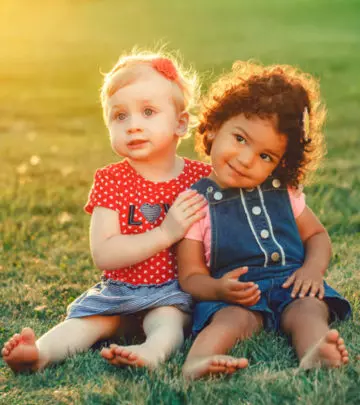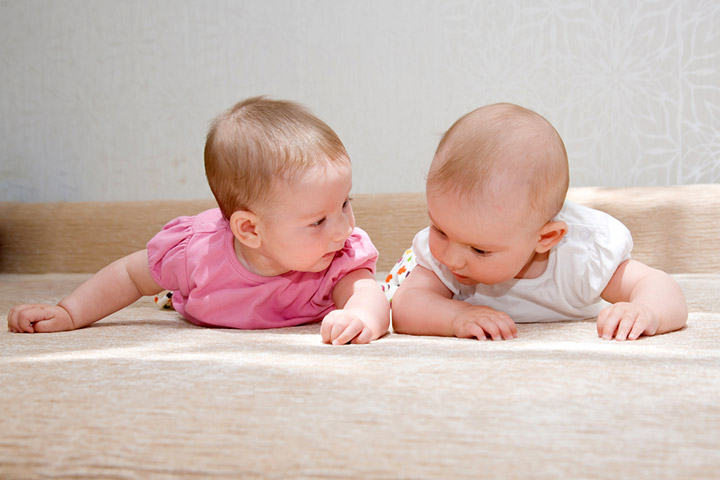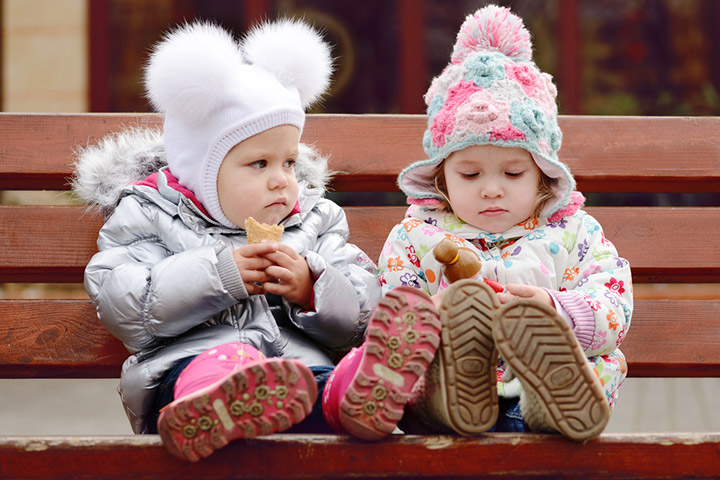
Image: Shutterstock
All parents want a name for their children that makes them stand out from the crowd and leaves a unique impression. And settling on the perfect one for their adorable one is a tough call that is never a cake walk.
A study suggests that parents invest some deep thought and understanding while naming their child as it can significantly impact how they look or what sort of personality they develop over the years (1). Given that this opens our eyes to a host of information that may help parents select the most appropriate name for their child, we’ve compiled below several points from the research that explain how a moniker can impact the child’s appearance and, to an extent, their behavioral patterns. Intrigued? Read on to know more.
Image: Shutterstock
Research conducted by the Journal of Personality and Social Psychology tells us that society’s stereotype of a first name can shape a person’s looks. In eight studies, it was seen that participants who were shown photo IDs of strangers they’d never met before were able to identify their first names. For example, you are a resident of the U.S. and were shown a picture of a woman named Emily (you haven’t been revealed this information yet). Below the image, four possible names were suggested: Deborah, Emily, Melissa, and Claire. Going by the assumption that first names are usual in the U.S. around the time you were born, participants of this study should pick the correct name at least 25 percent of the time, by chance. Surprisingly, it was found that the participants correctly guessed the name of the depicted person’s true first name around 35 to 40 percent of the time. In conclusion, what could be deciphered from this experiment is that something typical about an Emily’s personality clearly enables us to recognize what an Emily would look like.
Image: Shutterstock
Now, if the name Emily is suggestive of how she may look, it was also thought that a computer should also accurately guess her actual name. And this is quite a great discovery across dozens of names experimented with. When computer analysis of around 100,000 French natives was conducted, it was able to guess the person’s first name at a rate above one of pure chance. It also produced a “heat map” for the names.
Names have certain stereotypes, cultural and social expectations attached to them. The research team concluded that this helped the participants guess the names correctly. For example, while the name “Katherine” sounds like a person who has been a good student, “Allison” brings in the idea of someone mischievous. Hence, the social attitudes towards names can heavily influence the name bearer’s ideas of how the person should look. And another consideration here is that people also tend to alter their external appearances to fit into the expectations of their names. Until this research was conducted, psychologists believed that people perceive us as intelligent, attractive, warm, or friendly by our facial appearance. However, they also added that certain factors also deter you from correctly guessing the names of individuals. When participants looked at images of people outside their own cultures, the chances of identifying their names correctly were far less. This study added an important dimension to what shapes our personalities: others’ perception of our name reflects in our faces.
Image: Shutterstock
If you’re wondering how that happens, we have a possible explanation. When a child is named, there are several social expectations, interactions, and inferences, which can influence how people treat the child. This social attitude attached to the name and the enormous pressure on the person who wears that name can mold how the person perceives themselves as well. They start acquiring those styles and expressions typically associated with someone who bears a particular name. For example, a person named Alison could end up wearing a specific perfume or adopt a hairstyle that’s consistent with the stereotype that the culture holds in their minds.
As far as studies in personality are concerned, self-fulfilling prophecies are quite a thing. For instance, someone repeatedly told they are good at something starts to believe it compared to others who aren’t conditioned. This is quite similar to a self-fulfilling prophecy where people begin to mimic the traits that society holds of those sharing the same name. It shows our tendency to stick to certain social stereotypes that reflect on our facial appearance. This could happen in different ways: an Angelina ties up her hair or that the first name is associated with someone who has an open mind, hence a more open-looking face.
Hence, it does matter that we name our kids according to how we wish society treated them. Well, that’s if you really care! What are your thoughts on this theory? Do you think our names affect our physical appearances? Please share your experiences with us in the comments below.















